Are you considering reapplying to your college after a time away? It can feel daunting, but don't worryâmany students have successfully navigated this path. A well-crafted letter can highlight your growth, renewed commitment, and readiness to thrive in your academic journey. Dive into this article to discover a comprehensive template and tips for writing an effective re-admission letter that will resonate with your college's admissions team.
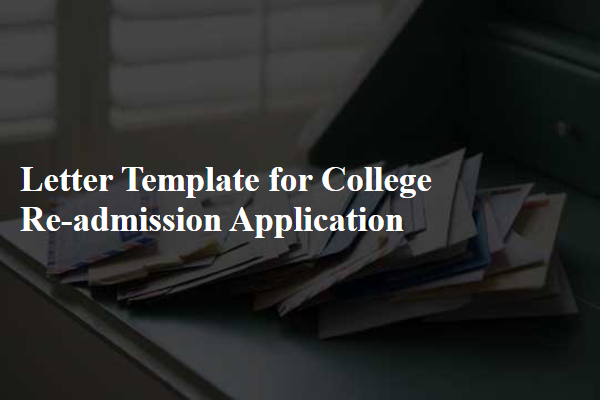
Personal Information
A college re-admission application requires detailed personal information to facilitate the evaluation process. Essential elements include full name, which identifies the applicant; date of birth, providing context for the applicant's age and educational stage; and current address, allowing the institution to establish residency. Additional information such as student ID number, assigned by the college, simplifies reference to academic records; contact information, including email and phone number, ensures effective communication regarding the application status; and academic history records, detailing previous enrollment periods (dates and courses taken), provide a comprehensive view of the applicant's academic journey. Including demographic information can also enhance the context of the application and assist the college in understanding its student population.
Reason for Re-admission
A college re-admission application often requires a clear explanation of the reasons for seeking readmission after a break. Factors could include personal circumstances such as health issues, family responsibilities, or financial challenges that prevented continued enrollment at the institution. Academic factors might also play a role, such as a desire to improve GPA or change majors after reflection and growth during the absence. Demonstrating commitment to overcoming past obstacles, highlighting specific steps taken during the break (like gaining relevant work experience, personal development, or completing coursework), and articulating a clear plan for future success can be vital. Establishing a connection with academic advisors or faculty members before submission can also strengthen the application. Expressing genuine enthusiasm for returning and contributing to the college community reinforces the desire to re-engage fully in academic life.
Academic Plan
The academic plan serves as a structured outline designed to facilitate a successful return to college after a period of absence. It encompasses various key elements, including specific academic goals, intended courses, and a timeline for completion. Students should define their major field of study, highlighting their commitment to academic excellence within that discipline. Detailing any previous academic challenges or personal circumstances that contributed to their absence will provide context to the admissions committee. Additionally, incorporating strategies for success, such as seeking academic advising or utilizing campus resources like tutoring centers, showcases proactive planning. Establishing a support system involving faculty, advisors, and peers will further enhance the student's academic journey. This comprehensive approach not only emphasizes readiness to re-engage with academia but also demonstrates a clear understanding of the responsibilities and expectations associated with college life.
Supporting Documentation
Supporting documentation plays a crucial role in a college re-admission application process. This collection of materials may include previous academic transcripts showcasing GPA and course performance, letters of recommendation from faculty or professionals highlighting personal growth and changes, personal statements discussing reasons for re-admission and future goals, and any relevant medical or psychological evaluations that support the applicant's past challenges. Additionally, documented evidence of completed personal development courses or skills training can demonstrate improvements and readiness to succeed in the academic environment. Ensuring all documents are organized and submitted in accordance with the college's specific guidelines enhances the chances of a favorable review.
Contact Information
The process for college re-admission applications requires precise contact information, ensuring that students maintain clear communication with the admissions office. Essential details include the student's full name, which must match the official records, followed by a primary communication method such as a personal email address (e.g., john.doe@email.com), ensuring accessibility. The phone number provided should be current, ideally a mobile one (e.g., (123) 456-7890), allowing quick outreach for any queries. Additionally, students should include their permanent address, specifying city, state, and ZIP code (e.g., 123 Main St, Anytown, NY 12345), facilitating the processing of correspondence and documentation. Accurate contact information is crucial for effectively handling the re-admission process and potential follow-up inquiries from the college.
Letter Template For College Re-Admission Application Samples
Letter template of college re-admission request for academic improvement.
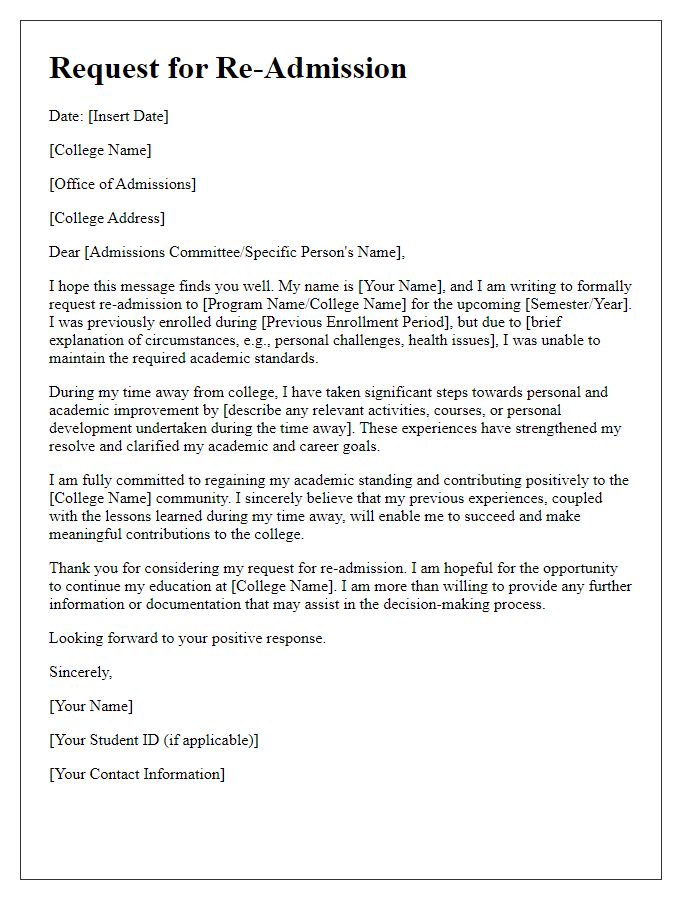
Letter template of college re-admission justification for financial hardship.
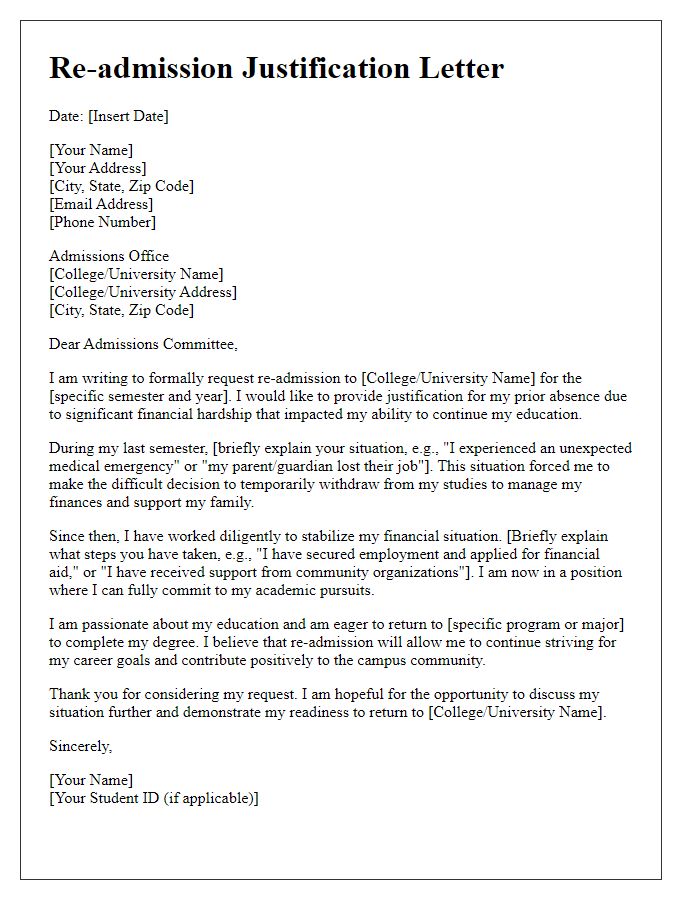
Letter template of college re-admission application for disciplinary issues.
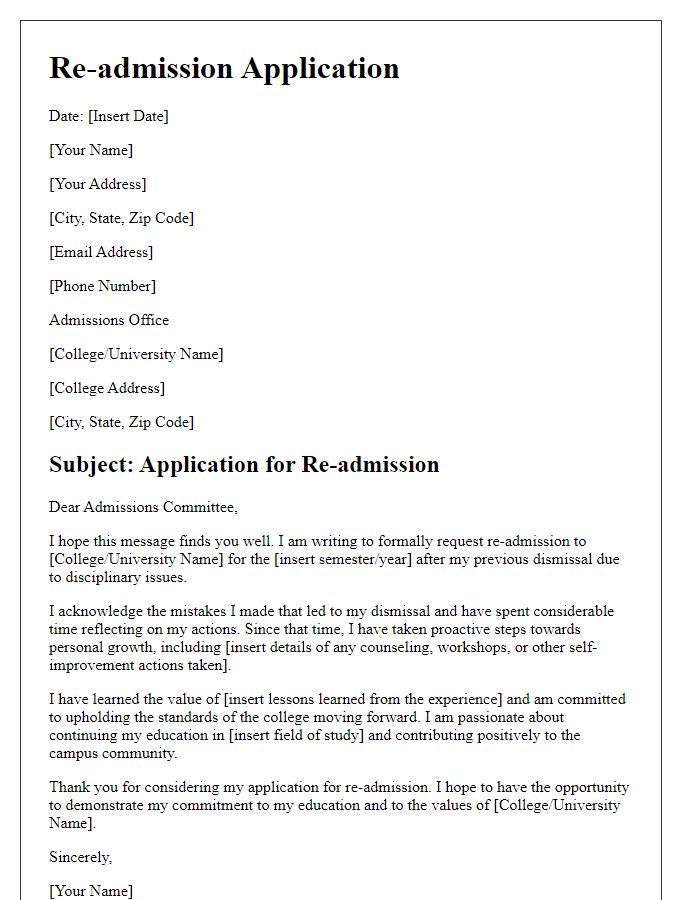
Letter template of college re-admission statement for family responsibilities.
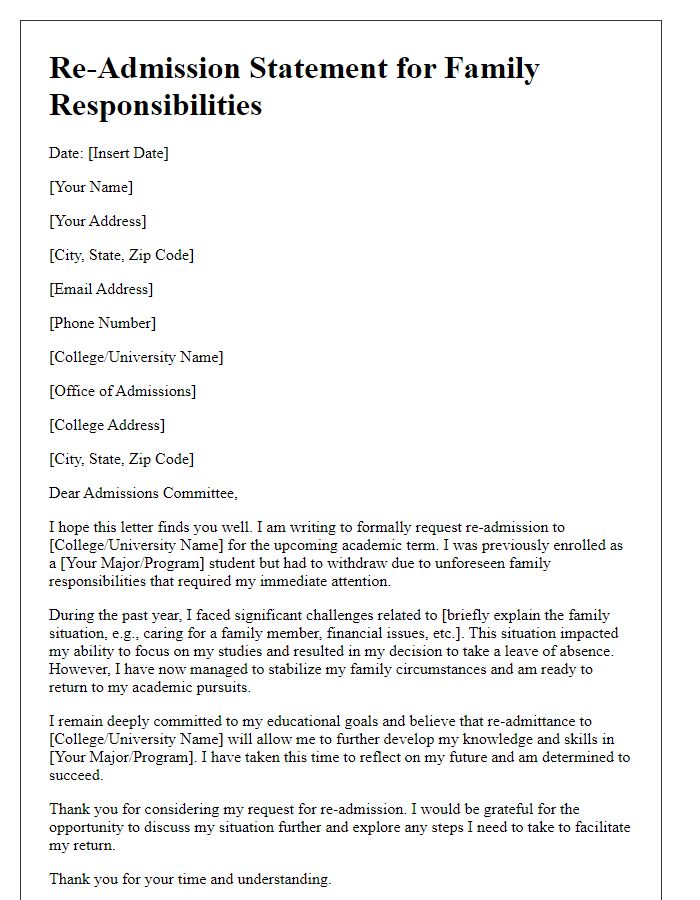
Letter template of college re-admission follow-up after initial rejection.
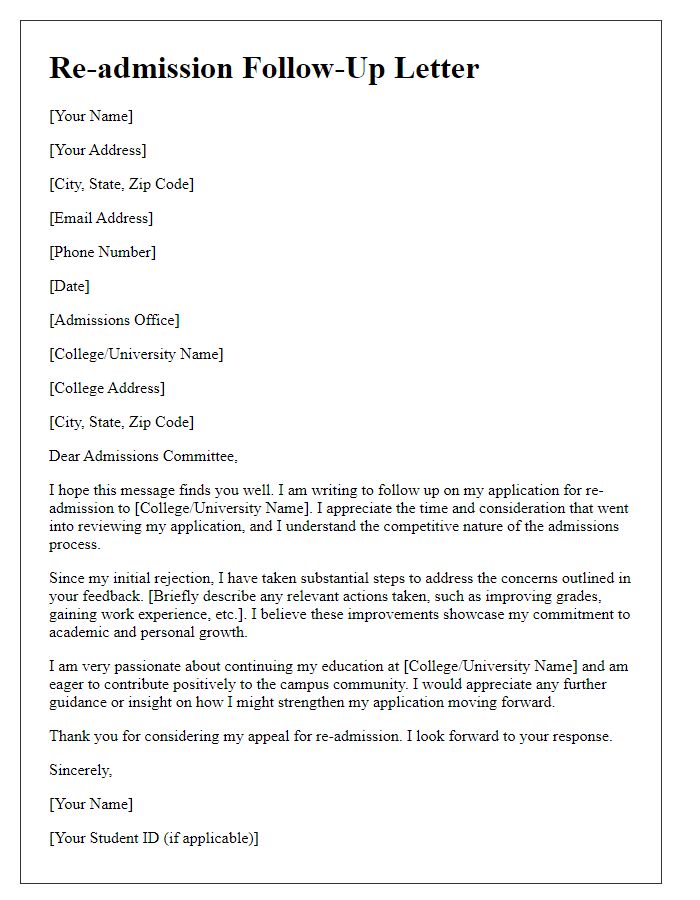

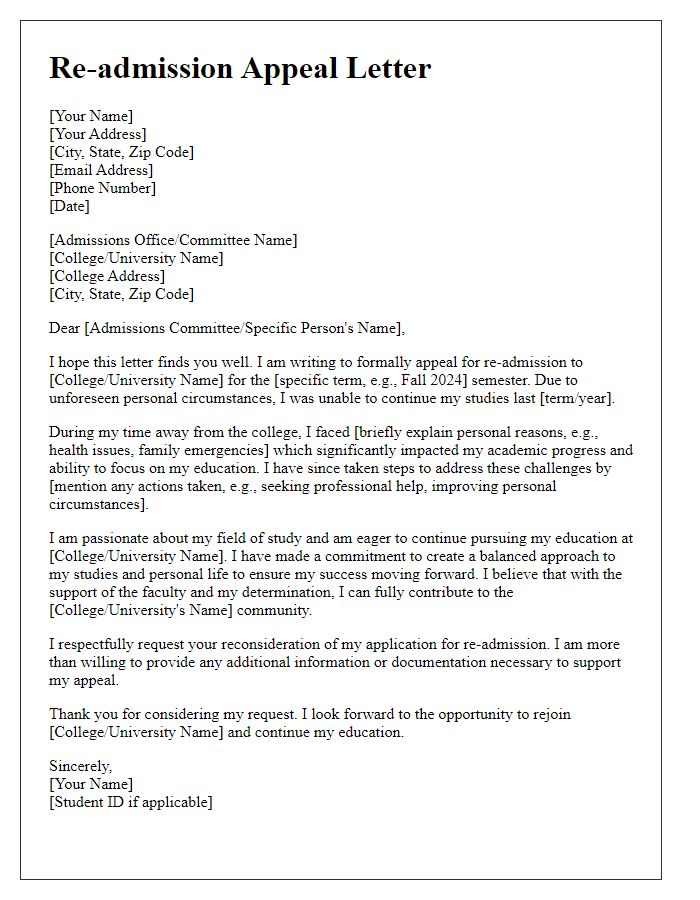
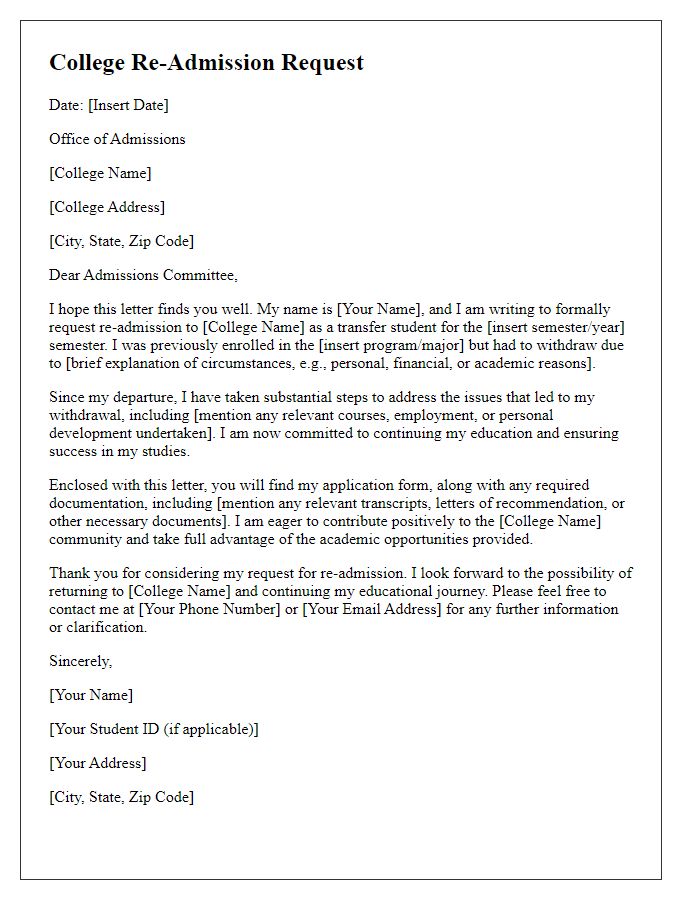
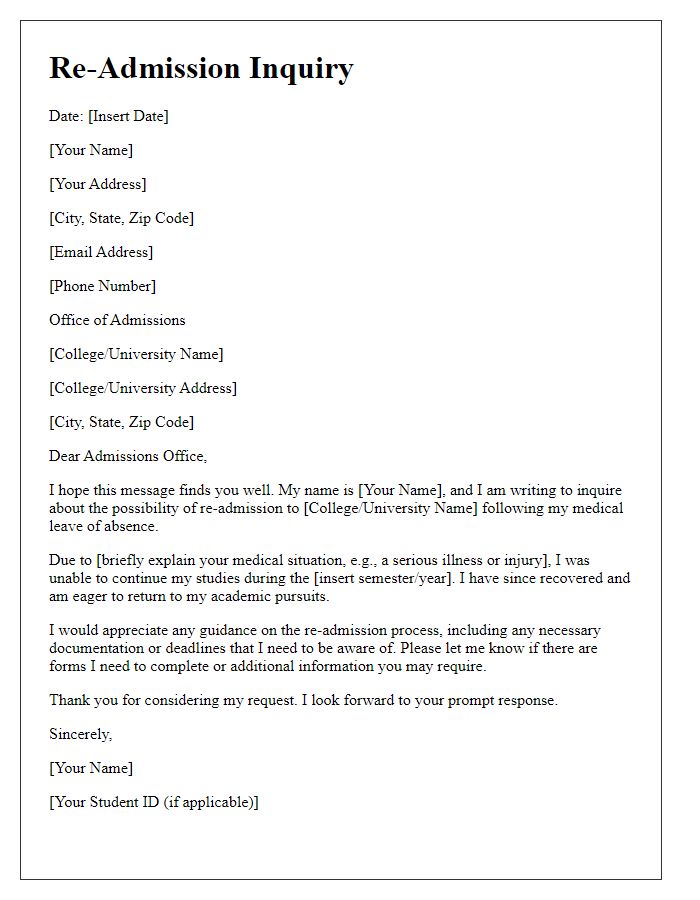
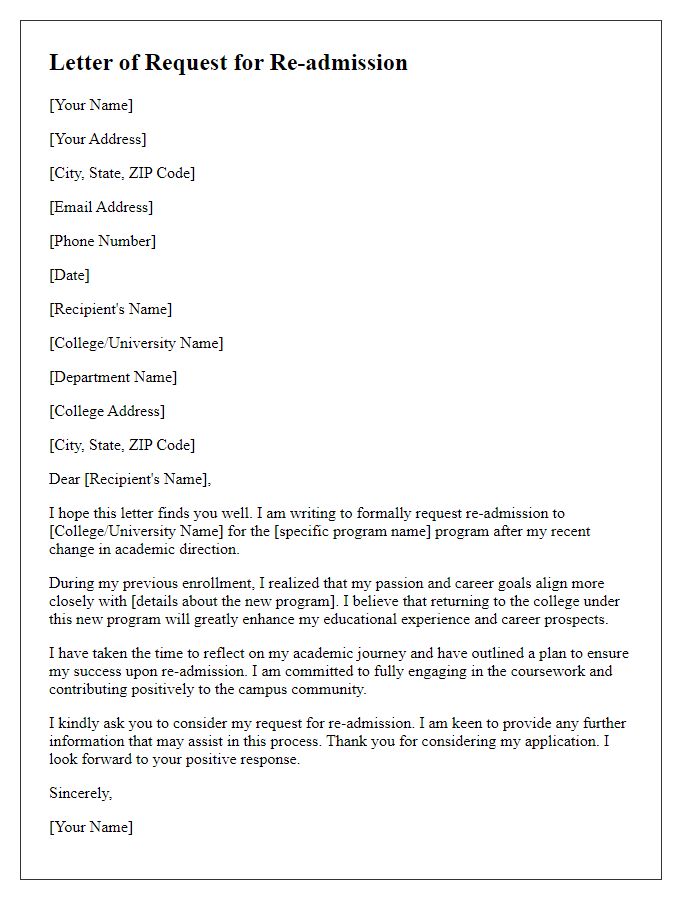
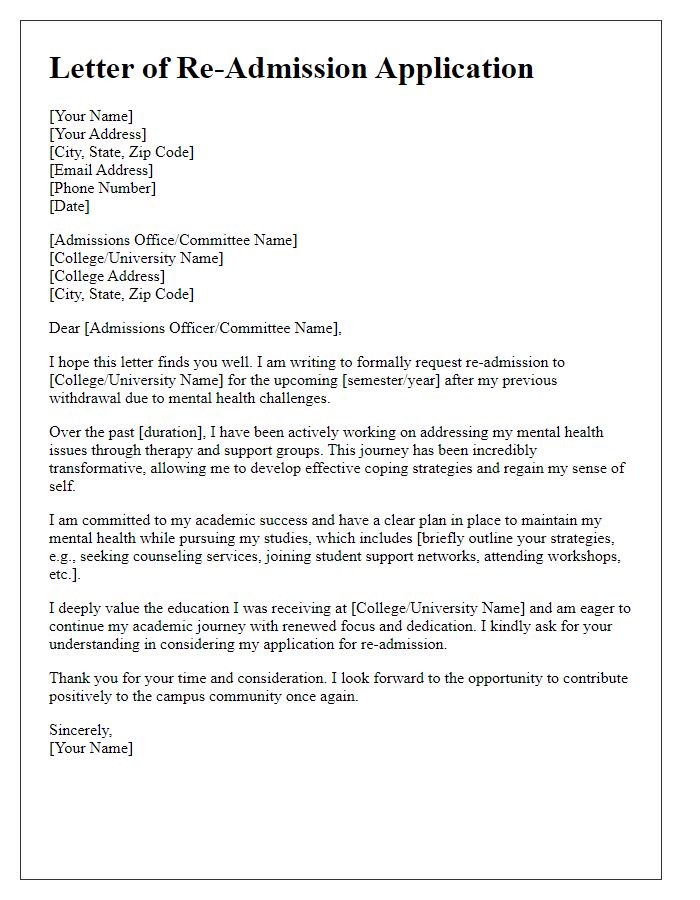

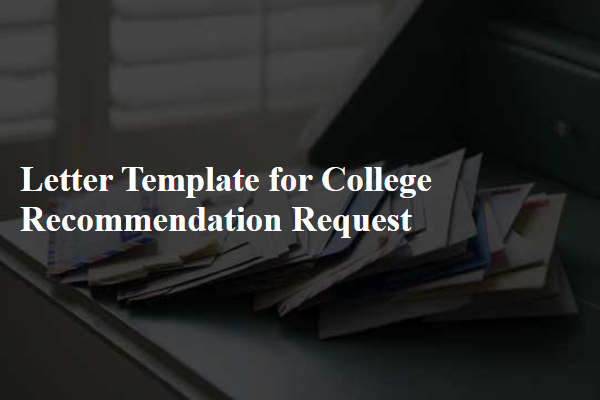
Comments